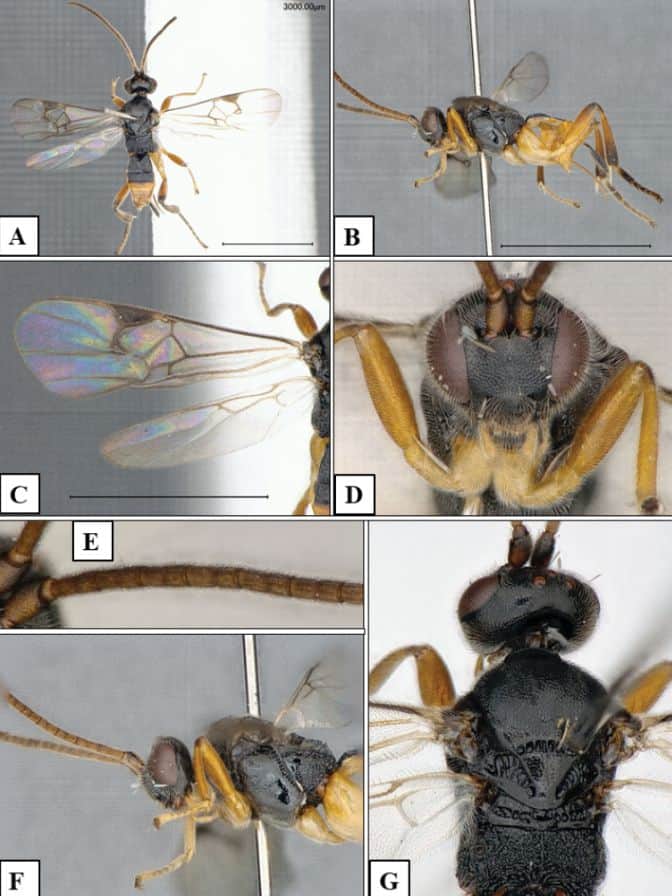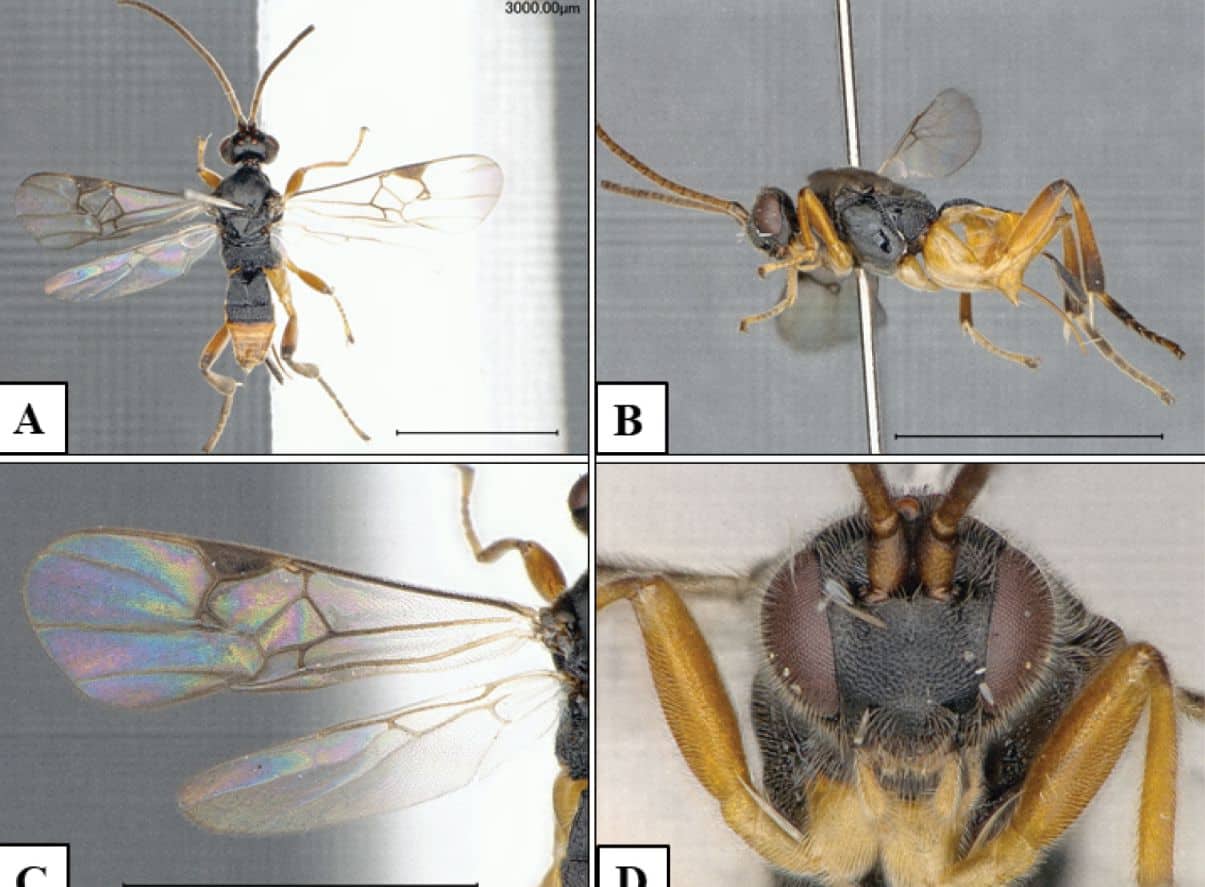In Japan, a new species of parasitic wasp has been discovered, that parasitizes on water caterpillars. To lay an egg in the body of the victim, these insects had to learn to dive – the researchers even captured this process on video. The new rider received the scientific name Microgaster godzilla in honor of Godzilla, the famous monster from Japanese films. Its description was published in an article for the Journal of Hymenoptera Research.
Parasitoid wasps are widely known for their unusual lifestyle. These creatures lay eggs in larvae of other insects, as well as in spiders. Growing up, young riders eat the host’s tissues and gradually kill it. Some of them are even capable of manipulating the behavior of their victims, for example, to force them to weave protective cocoons.
Even aquatic insects are not immune from attacks by riders. Although the vast majority of several hundred thousand species of parasitic wasps are terrestrial, some of them have learned to dive to reach the aquatic larvae. For example, in the subfamily Microgastrinae within the Braconidae subfamily, whose representatives parasitize Lepidoptera larvae, there are two species specializing in aquatic caterpillars: Dolichogenidea amaris and Hygroplitis rugulosa. At the same time, scientists have still not been able to observe exactly how the female riders find victims and lay eggs in their bodies.
Entomologist Jose Fernandez-Triana of the Canadian National Insect Collection has been able to significantly expand knowledge of aquatic wasp species. From 2015 to 2017, he and his Japanese colleagues collected several caterpillars of the herb moth Elophila turbata in city ponds in Osaka and Kyoto prefectures. The caterpillars were kept in captivity, but some of them could not turn into butterflies: instead, from their cocoons, riders of a previously unknown species appeared.
Researchers decided to study the biology of unusual insects in more detail. They placed each rider in a separate container and fed them, honey. Then, the females were released one by one into a small aquarium with twenty E. turbata caterpillars and their behavior was recorded using a video camera. In total, the experiment was repeated five times, with different riders and different hosts.

They have recorded how female riders walk on floating plants, looking for victims. Finding a caterpillar sitting inside a portable house made of plant particles half-submerged in water, the wasp begins to move along its surface, frightening the hostess and forcing her to get out of the shelter into the water. At this moment, the rider dives, quickly inserts the ovipositor into the victim’s body and lay the egg. In cases where the caterpillar house is completely in the water, the wasp has to dive right away. At the same time, some females do not drive the victims out of their shelters, but simply pierce the wall of the house with their ovipositor.
Morphological and anatomical analysis confirmed that the wasp is a representative of a new species from the Microgastrinae subfamily. The authors decided to name it Microgaster Godzilla – in honor of Godzilla, a giant monster from Japanese films that comes out of the ocean and destroys cities.
Entomologists are regularly discovering new species of equestrian in different parts of the planet. Some of them are given very unusual names. For example, recently it became known that a rider discovered in Mexico was named after the coronavirus pandemic – Stethantix covida . The fact is that it was discovered during quarantine.
